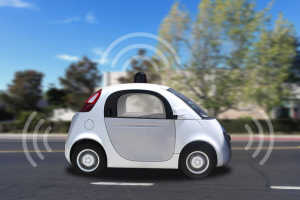Self Driving Cars and the liability that comes with them
 Technology is quickly changing our lives. From smartphones to smartwatches to driverless cars, new technology is being developed to improve our lives in various ways. At times, development of new technology is so fast paced that consumers can barely keep up. Just purchased a new smartphone a couple months ago? Well, guess what, a newer version with new features is coming out in four months. At other times, roadblocks must be overcome before new technology reaches the consumer.
Technology is quickly changing our lives. From smartphones to smartwatches to driverless cars, new technology is being developed to improve our lives in various ways. At times, development of new technology is so fast paced that consumers can barely keep up. Just purchased a new smartphone a couple months ago? Well, guess what, a newer version with new features is coming out in four months. At other times, roadblocks must be overcome before new technology reaches the consumer.
One area where new technology has met a roadblock is that of self-driving cars, otherwise known as autonomous vehicles. Various companies, such as Google, Volvo, and Mercedes-Benz, have been developing self-driving cars in recent years and other car manufacturers intend on entering the game as well. In fact, some companies have already been test driving such cars on the roads of certain states in the US. Although some companies have set goals to have their self-driving cars on the market around the turn of the decade, roadblocks in the form of questions regarding liability have slowed their momentum.
But why would there be such a concern regarding liability with self-driving cars? Surely, the current laws regarding automotive liability and car accidents would be no different for self-driving cars? The answer, unfortunately, is not so simple. For instance, Ms. CEO is traveling from home to an important board meeting in her self-driving car. En route, she is going over her presentation in last minute preparation and, consequently, is not paying attention to the road. Her self-driving car, however, does not sense a pedestrian jaywalking across the 3-lane highway upon which she is traveling. Ms. CEO’s self-driving car strikes the jaywalking pedestrian while traveling at 40 miles per hour and seriously injures him.
Under the scenario described above, who is liable? The manufacturer of the self-driving car because it failed to sense the jaywalking pedestrian? Ms. CEO because she was not paying attention to the road and possibly could have prevented the accident otherwise? The jaywalking pedestrian for jaywalking? All three (3) parties involved or perhaps a combination of them? Whose insurance carrier is liable for the jaywalking pedestrian’s injuries and medical treatment for same?
What if the self-driving car was purchased used at a used-car dealership? What if it had been previously involved in a motor vehicle accident, but was not repaired properly and had a four (4) degree bend in its frame that, according to experts, resulted in the failure of Ms. CEO’s self-driving car in detecting the jaywalking pedestrian?
Some self-driving car developers, such as Google and Volvo, have gone as far as to publicly state that they will accept responsibility for motor vehicle accidents caused by their self-driving cars in an attempt to remove the roadblocks to mass production of such cars. But they have one (1) caveat to that statement: if the accident was caused by a defect in the car’s design.
Some legal experts, on the other hand, believe that liability concerns over self-driving cars are actually unwarranted. In support of their belief, they point to products liability laws as “an alternative” area of law that would apply.
While there may be no easy answers, our future blogs will explore the liability issues involved with self-driving cars and discuss the pros and cons of the applicability of products liability laws to motor vehicle accidents involving such cars.


